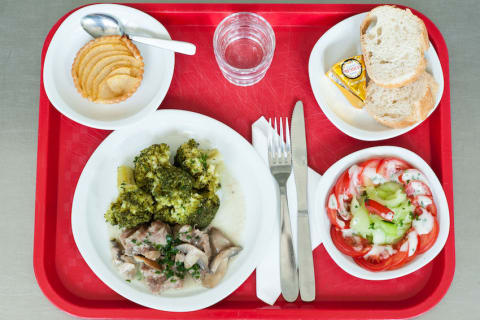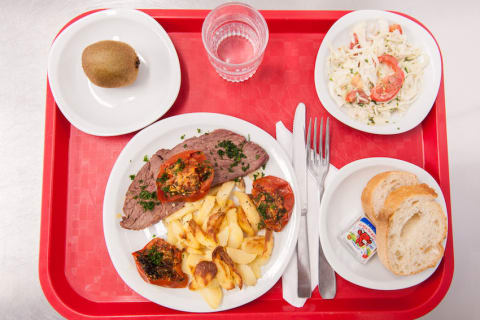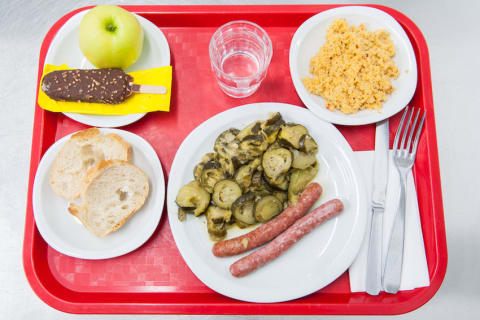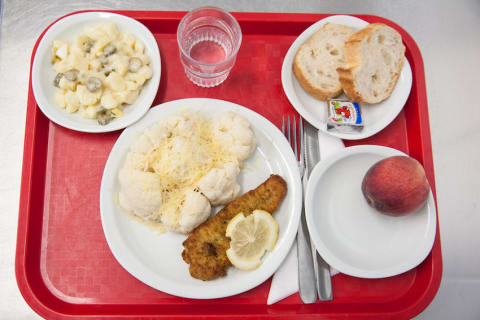There are many theories as to why French people, and French children in particular, do not suffer from weight problems, obesity, diabetes, and hypertension like their American counterparts. Eating moderate quantities of fresh and freshly prepared food at set times of the day is definitely one of the most convincing reasons why. Daily exercise, in the form of three recess periods (two 15-minute and one 60-minute recess every day) and walking or biking to and from school, is another. Almost all foods are prepared right in the kitchen; they’re not ready-made frozen. This means mashed potatoes, most desserts, salads, soups, and certainly the main dishes are prepared daily. Treats are included—the occasional slice of tart, a dollop of ice cream, a delicacy from the local pastry shop. (Check out these photos of a school lunch being prepared on premises.) Below are photos and a description of one week’s worth of school menus. Of note: French elementary school students don’t go to school on Wednesdays, so that’s why there are only four meals. “Eating a balanced meal while sitting down calmly is important in the development of a healthy child,” adds Cahuzac. “It helps them to digest food properly, avoid stomachaches, and avoid sapped energy levels in the afternoon.” Aside from two hourlong periods of gym during the week, kids often walk during school outings and field trips (which can include anything from an hour to the local library, a visit to local farms, to the lakeside for paddleboard lessons, or a hike up a local mountain). Walking is emphasized at even younger ages—indeed 3- and 4-year-olds in preschool will walk up to 2 kilometers in an afternoon to go visit the local library. Sometimes they walk to the local retirement home to sing songs for the elderly. Elementary-age schoolchildren in the big French cities walk just as much — it’s often easier for them because of sidewalks. “Even the youngest children in preschool walk together every week,” explains Cahuzac. “Those who want to complain usually just follow the pack and eventually get in the habit of walking.” What about school? Two suggestions: If healthy options are not available in your school, get in the habit of packing a healthy lunch for your child and boycott the cafeteria’s fast foods. Then, reach out to local, state, and national elected officials and demand better nutrition in your school.






